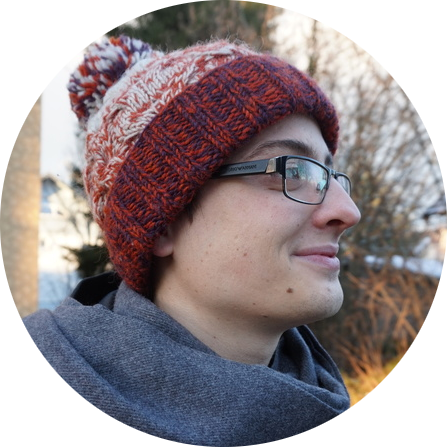
Roland Faure
My research lies at the intersection of biology and computer science, with a focus on developing algorithms for large-scale (meta)genomic data analysis.
Since February 2025, I am a postdoctoral researcher in Rayan Chikhi's group at Institut Pasteur, Paris, working
on efficient indexing and exploration of the Logan dataset.
Previously, I completed my Ph.D. (2021–2024) on metagenome assembly and strain separation under the joint supervision of
Dominique Lavenier (Inria Rennes) and Jean-François Flot (Université Libre de Bruxelles).
// PUBLICATIONS, PROCEEDINGS & PREPRINTS
- R. Faure et al. SNooPy: a statistical framework for long-read metagenomic variant calling, Preprint (2025), [PDF] [link]
- R. Faure et al. Alice: fast and haplotype-aware assembly of high-fidelity reads based on MSR sketching, Preprint (2025), [PDF] [link]
- R. Faure et al. Hairsplitter: Separating noisy long reads into an unknown number of haplotypes, Peer Community Journal (2024), [PDF] [link]
- R. Faure et al. strainMiner: Combining Integer Programming and Data Mining Techniques for Strain-level Metagenome Assembly, Proceedings of BIOSTEC/BIOINFORMATICS 2024, [PDF] [link]
- R. Faure et al. GraphUnzip: Untangling assembly graphs to finish assemblies, [Proceedings of JOBIM 2023] [Ph.D. chapter (2024)]
- R. Faure et al. QuickDeconvolution: fast and scalable deconvolution of linked-read sequencing data, Bioinformatics advances (2022), [PDF] [link]
- R. Faure Haplotype assembly from long reads, (2024), [PDF]
- R. Chikhi et al. Logan: Planetary-Scale Genome Assembly Surveys Life’s Diversity, Preprint (2025), [PDF] [link]
- O. De Thier et al. First chromosome-level genome assembly of the colonial chordate model Botryllus schlosseri (Tunicata), GigaScience (2025), [PDF] [link]
- A. Choudhury et al. Deep mutational scanning reveals the molecular determinants of RNA polymerase-mediated adaptation and tradeoffs, Nature Communications (2023), [PDF] [link]
First author
Ph.D. thesis
Contributing author
// CONFERENCE TALKS & PRESENTATIONS
Logan project
- SeqBIM 2025 [slides]
MSR sketching & Alice assembler
HairSplitter: distinguishing errors and variants in long reads
GraphUnzip: combining Hi-C with assembly graphs
- SeqBIM 2021 [slides]
- JOBIM 2021